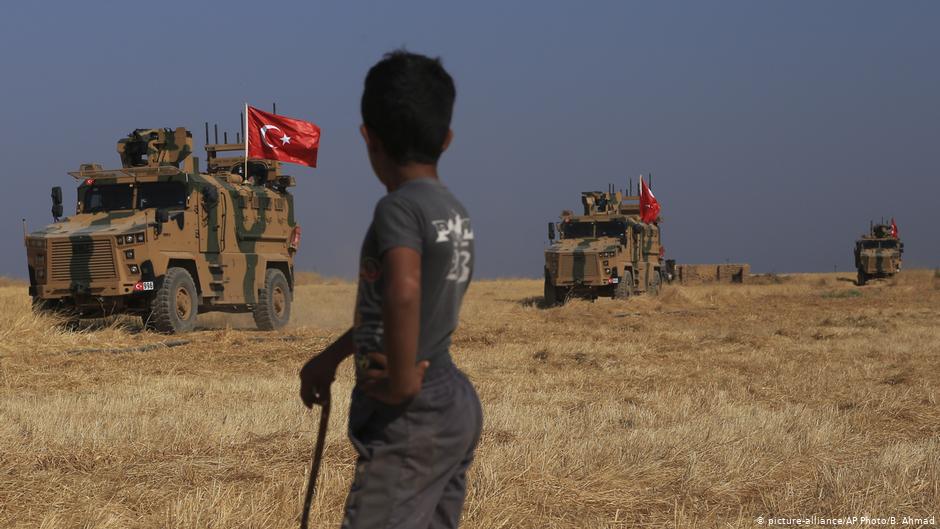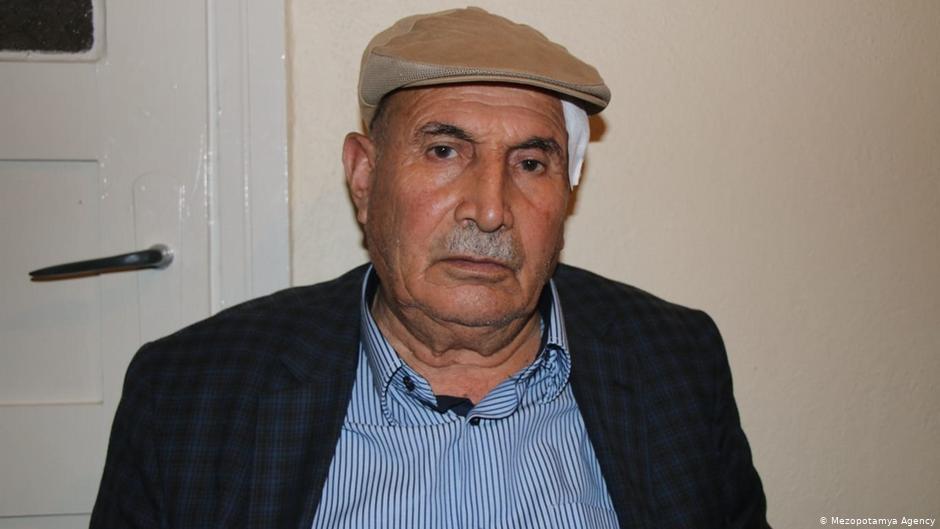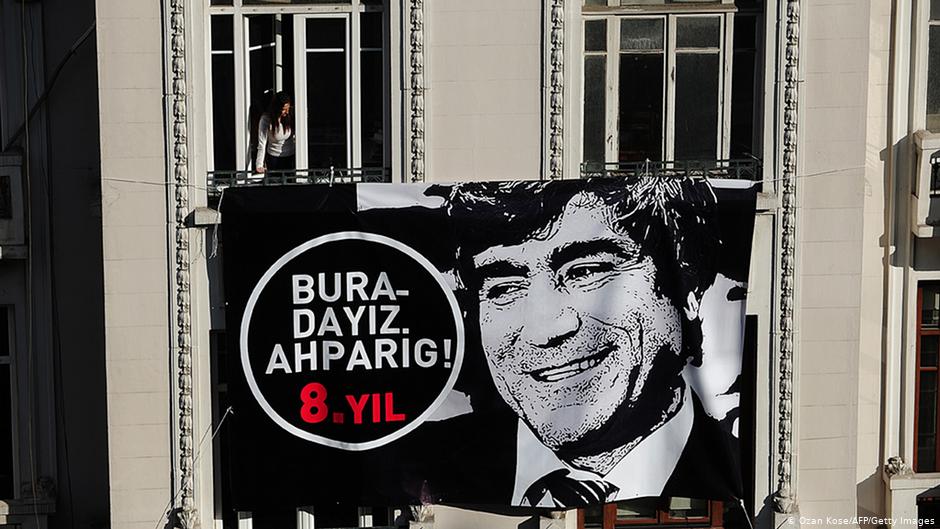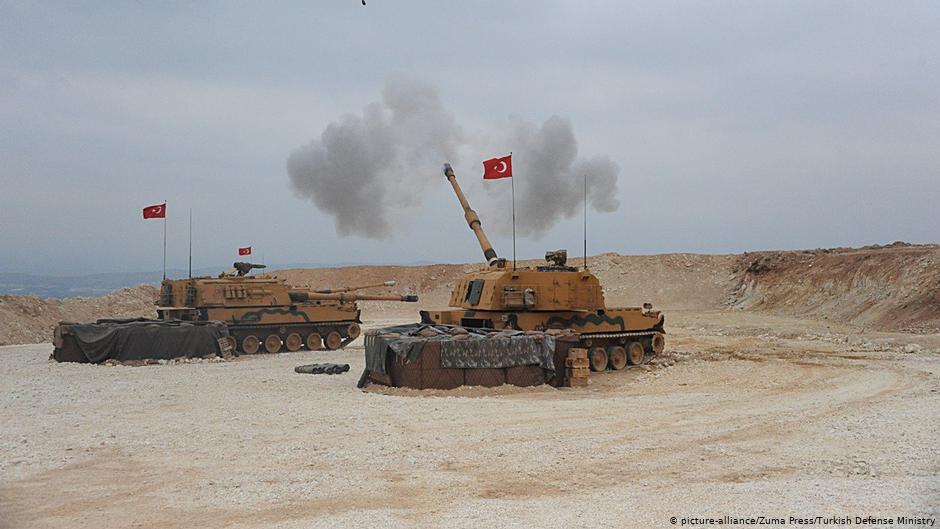You reap what you sow

Racism is a defining element of the Turkish national consciousness. Not only is the genocide of the Armenians and other Christian peoples of Anatolia still subject to vehement denial, any deviation from the Turkish-Sunni national identity continues to be suppressed to this day.
When the Republic was founded, non-Muslims were marginalised and expropriated through targeted legislation. This resulted in mass emigration and pogroms such as those in Thrace in 1934 and Istanbul in 1955.
Kurds and Alevis were not dispelled, but required by the Turkish state to assimilate by ceasing to practice their ethnic and religious idiosyncrasies. Kurds were expected to forget their language, customs and history – and moreover also suppress the knowledge that many of them had relatives that now had to be Syrians, Iraqis and Iranians. For all this, the Kurds were also expected to be grateful. Any form of resistance against the forced assimilation was violently put down.
For example, in 1938 in Dersim. Those living in the province speak Zaza, a language related to Kurdish, follow the Alevi faith and did not want to assimilate. Because of this, they were murdered in their tens of thousands – one of Istanbul’s airports is named after one of the pilots in this campaign Sabiha Gokcen. The province was perfidiously renamed after the military operation – the official name is no longer Dersim, but Tunceli (Bronze Hand).
Frequent attacks on Kurds
But this racism does not emanate from the state alone: in Turkey, people are frequently attacked in the streets by civilians because they speak Kurdish; musicians are pelted with objects because they sing Kurdish songs; and wedding parties broken up because traditional Kurdish songs are being played. For this reason, many prominent Kurdish musicians live in Europe.

Just a few days ago, 74-year-old Ekrem Yasli was beaten up by six young men because he was speaking Kurdish to his wife while visiting her in hospital. The attackers cried out ʺThis is Turkey!” As a result, Yasli himself ended up needing hospital treatment. Not long before, 19-year-old Sirin Tosun was lynched and then shot dead, also because he had been speaking Kurdish.
One week previously, Cigdem Toprak wrote in the German newspaper Die Welt that although there was prejudice and discrimination in Turkey, there was no ʺracismʺ – or in other words: there are no institutional mechanisms that exclude Kurds as a race from senior positions, for example. This is true – a Kurd can become president of Turkey – but only if he never speaks Kurdish and supports every single inhuman policy introduced by the Turkish state – for example, the cruel ʺanti-terror deploymentsʺ in majority Kurdish areas.
Furthermore, it is also racist to deny the Kurds the right to their own state: why should they not be allowed the same thing as Turks, Arabs, Persians, Germans and the French? The nation state is certainly not the most elegant invention of more recent centuries, but it is important to understand that discrimination against the Kurds is not solely expressed through direct violence.
At Turkish universities, Turkish literature is studied and the greats of the Turkish nation and history are extolled – in Syria and Iraq the same menu is served up in Arabic. Why should the Kurds not have their own universities, so that they can indulge their national passions in Kurdish?
Discrimination against non-Muslims
Ms Toprak also points out that Turks, Kurds and Armenians, Muslims, Alevis and Christians all serve together in the army. Firstly, it should be remembered that for a long time, the Turkish state ran an internal citizen-marking system, in which people were assigned particular letters in accordance with their heritage – non-Muslims could not be promoted to senior ranks. This method was applied for decades without the knowledge of those affected.

The fate of Sevag Balikci gives us some idea of what happens to non-Muslims in the army (quite apart from the daily humiliation and countless oaths to the Turkish nation and Islam). Initially, the army told his family he had committed suicide, coincidentally on 24 April, the day commemorating the Armenian genocide. It later turned out that his comrades had intentionally killed him by a shot in the head, although the authorities are still calling it ʺinvoluntary homicideʺ.
He is not the only Armenian to have fallen victim to Turkish nationalism in recent times. Still fresh in the memory is the murder of the Armenian-Turkish journalist Hrant Dink, shot dead on the street in Istanbul by a young nationalist, apparently acting under the authority of racist structures within the Turkish state. Many people in Turkey, in particular within the security forces, declared solidarity with the murderer, not with the victim.
Support for the war is not harmless local patriotism
The enthusiasm for the war shown by many people in Turkey is being excused as familial sentimentality – everyone has a cousin, a brother a son or a father in the military. That’s true, everyone has relatives, and as long as the Turkish state drafts all young men into frequently homicidal and illegal deployments, this will not change.

I too have cousins in the military, youngsters I would very much like to see alive again. But it is precisely these mechanisms that need to be breached. Turkish society must realise that war is abhorrent and that the Turkish state is embroiled in a serious crime. Even if we are legally bound to send our sons to war, we need to be reminded that evoking national unity in the face of a threat that is largely the stuff of fantasy, has never resulted in peace and happiness.
No prospect for peace long-term
Of course, from the Turkish perspective, the presence of a predominantly Kurdish military unit organically linked with the PKK does constitute a risk, but to date, the PYD has not attacked Turkish soil. Interestingly, Turkey never claimed any such security concerns in the years when IS controlled large parts of Iraq and Syria.
The fact cannot be glossed over: the motivation behind the Turkish invasion is the destruction of Kurdish autonomy, the mass deportation of Syrians to occupied territories – which requires an ethnic cleansing of the Kurdish population – and distraction from domestic problems. Not to mention the promise of lucrative construction deals that could breathe new life into the ailing Turkish economy.
As for the Kurds themselves, they will continue to become politicised, and in the worst case radicalised. This means that there will be no peace for Turkey in the long-term either.
Supporting this invasion, which contravenes international law, whether by the hoisting of flags, displaying the military greeting or playing down Turkish aggression, is in no respect compatible with the basic principles of a democratic and fair society.
Tayfun Guttstadt
© Qantara.de 2019
Translated from the German by Nina Coon
Tayfun Guttstadt was born in Hamburg and studied Islamic Studies and Musicology in Hamburg. He also holds a masters in Religion and Culture from the HU Berlin.
